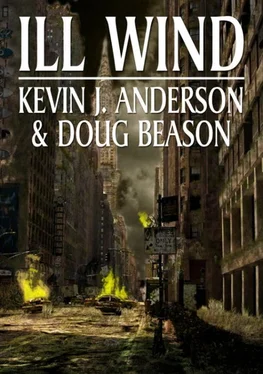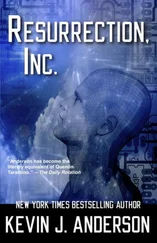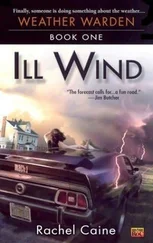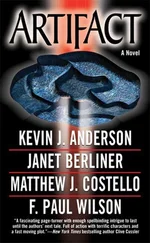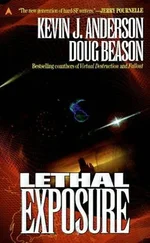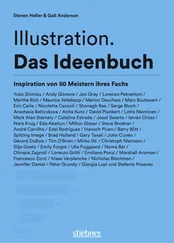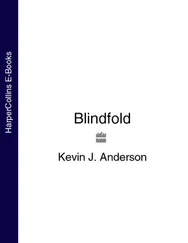Within ten minutes the two horses approached the southern end of the bridge. Waves crashed against the rugged shore of Fort Point. The deep-green cypress trees and red-roofed military housing of the Presidio shone with brilliant color, as if someone had twisted up the contrast knob. At the end of the bridge, an unlit sign demanded STOP! PAY TOLL. Todd directed Ren and Stimpy through the empty toll booths. He smiled ironically to himself as they passed through the unused “carpool” lane.
On horseback, he entered San Francisco.
* * *
Todd avoided the densest part of the city, planning to ride full-tilt through Golden Gate Park, keeping his head low and a firm grip on Stimpy’s reins. His horses were among the most valuable possessions in the world right now. He kept the pistol within easy reach and urged Ren and Stimpy to a fast trot.
Reaching the large forested area of the park, the small lakes, and the wide grassy clearings made him forget he was in the middle of a city, for a short while. In the grassy expanse, Ren tried to stop and graze, but Todd wouldn’t let him, jabbing with his boot heels to keep up the pace. He saw no kids tossing baseballs or frisbees, no fun and games.
A cluster of men and women worked by the trees with hand saws and axes taken from downtown hardware stores. Not one of the people looked accustomed to manual labor, and they took frequent rests. With a scurry, they fled to one side as a eucalyptus came crashing down, then they set to work chopping it into smaller pieces. A mound of firewood sat stacked to one side. Teenagers took turns with sledge hammer and wedges to split the chunks. Two older women with new rifles stood guard over their wood.
Todd urged Ren and Stimpy eastward out of the park and into more dangerous crowds, following the Panhandle under large oak trees. Old Victorian houses towered over the boulevards on either side of the narrow strip of park, but Todd kept the horses on the grass as long as he could, until he was finally forced to return to the city streets in Haight-Ashbury. It did not surprise him to see various apocalyptic street preachers hawking recipes for salvation to the wandering crowds. Every time someone looked at Todd too closely, he conspicuously pulled out the pistol.
In front of a row of dark coffee shops, Chinese street vendors had set up food kiosks with sidewalk barbecues, burning sticks of what appeared to be broken crates and pieces of furniture. They cooked on Weber kettle grills and cast-iron woks over open fires. Looking at the exotic food as he rode by, Todd had a sudden craving for a decent steak. He wondered how hard it was going to be to find food from now on.
A lump caught in his throat, claustrophobia from the jammed, breaking-down buildings, the sounds of breaking glass, shouts from the sidewalks, he realized he had lost his way. “Calm down,” he said to himself, “calm down.” Breathing deeply, trying to quell his panic, he reined the horses to a stop and unfastened his saddle bags to take out a map. He unfolded it and tried to get his bearings, figuring out the best way to return to Highway 101. He felt absurd sitting on horseback in the middle of a deserted intersection, staring at a street map like some lost tourist.
He had just decided which way to turn when a series of popcorn noises came from a rooftop a block away. It took him a moment to identify them as gunshots. Across the street, Todd saw a flash of stone dust and heard the spang as a bullet ricocheted from the wall of a building. “Jeez!” he cried and yanked out the pistol again, waving it in the air. Another gunshot struck nearby. Todd fired off a round in the direction of the sounds, but knew he had no chance of hitting anything.
“Yah!” he shouted at the horses. Both Ren and Stimpy galloped away from the sniper, down Van Ness toward the highway leading out of the city.
* * *
With the horses hidden in a cluster of live oaks on the ridgecrest, Todd prepared to spend the night in the highlands of the Peninsula, west of the freeway. By nightfall, he had traveled south, through the hills rimming Daly City and San Bruno. He could see the San Francisco International Airport, deserted, like a vast parking lot.
The gunshots and the turmoil made him want to avoid contact with people. He followed fire roads up into the rugged hills, heading in the right general direction.
He kept thinking about Iris, knowing he needed to hurry, to get her out of a dark, dangerous apartment in Stanford. Heck, she probably wouldn’t wait for him anyway. But on the slim chance that she would, he had to get his backside there as soon as he possibly could.
He decided to rest for a few hours, start out again before dawn, and make a good distance by daylight. He built a campfire in a clearing and heated a can of chili, eating it with a spoon he had taken from Alex’s kitchen. If he had been able to forget about the rest of the world, he might have enjoyed the evening.
The countryside seemed too quiet, wrongly so. Out in Wyoming the silence had never bothered him because he did not expect to hear bustling noises. But the San Francisco peninsula was supposed to be a Christmas-tree network of lights, moving traffic, busy lives. From his high vantage point, he could see only a few glimmering signs of life below—bonfires, Coleman lanterns, battery lamps, flashlights.
Todd fell asleep huddled in two blankets.
* * *
Before setting out in the early morning darkness, Todd munched dry frosted flakes from a single-serving box he had found in Alex’s pantry. The cereal tasted stale. Todd wondered how long it had been there.
This time he mounted Stimpy. They followed the ridge line, then descended to the freeway again in the stillness of the rising sun. Birds began to sing to the morning, unaffected by the crumbling of the cities.
The rest of the ride to Stanford seemed like a repeat of the previous afternoon, passing through suburbs and South Bay carbon-copy cities with different names. It seemed as if every person had decided to wander the streets, either defending their homes or looting somebody else’s. He found an isolated, tree-shaded park in Palo Alto and studied the map again, then headed toward the Stanford University campus.
In one city block, a loud crashing sound startled the horses. As he rode closer, Todd saw that crude barricades had blocked off a 12-story office building. Every few minutes, one of the glass window panes would pop free of its dissolving plastic housing and tumble to the ground, reflecting the sun like a strobelight until it exploded on the pavement. Students gathered across the street, drinking beer from bottles and applauding each new fall of glass.
Todd shook his head and rode on, close now.
When he finally tracked down Iris’s street address, he waited outside her three-story apartment building, having no idea what to do with Ren and Stimpy. He couldn’t just padlock the horses to a bike rack, and he didn’t want to leave them tied out front. He considered his options outside the complex, baffled, until he finally decided to take the horses in with him. Why the heck not?
Ren and Stimpy dug in their hooves, reluctant to go through the narrow glass door. Finally, he coaxed them into the sparsely furnished lobby, where he tied them to the wrought-iron stair railing; at least they were hidden from outside view. Standing beside a tattered sofa and an old end-table, the two horses looked at Todd as if he were crazy. He tipped his cowboy hat at them, then bounded up the stairs, his boots echoing on the hard surface.
After turning down the wrong hall, he followed the numbers, to Iris’s door. He took off his hat, then rapped on the wood. He waited. His stomach knotted. She probably wasn’t home. Iris was a smart lady, and she should have had the good sense to pack up and leave already.
Читать дальше
